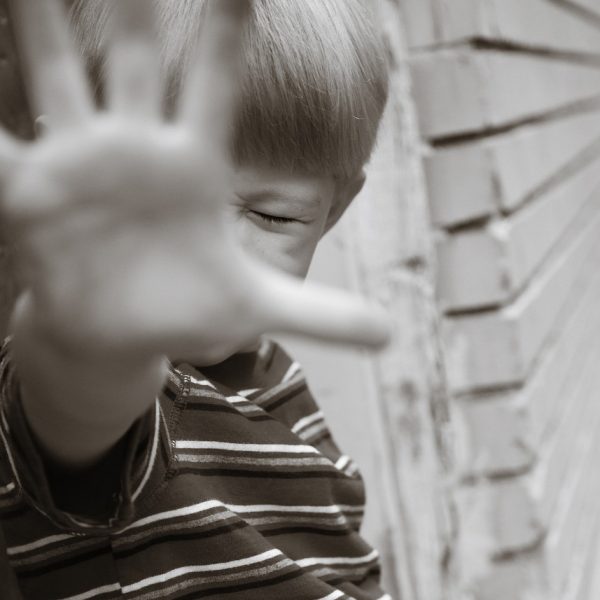Do Martial Arts Help with Bullying?
Bullying is a pervasive issue that affects many people, especially children. According to the National Center for Educational Statistics, about 20% of students ages 12-18 reported being bullied at school during the 2018-2019 school year. The effects of bullying can be devastating, leading to depression, anxiety, and even suicide.
One way to combat bullying is through martial arts training. Martial arts can provide children and adults with the confidence, self-discipline, and self-defense skills needed to stand up to bullies. Wing Chun Kung Fu is one martial art that has been shown to be particularly effective in this regard.
What is Wing Chun Kung Fu?
Wing Chun Kung Fu is a Chinese martial art that emphasizes close-range combat and practical self-defense techniques. In the 17th century, a Buddhist nun, named Ng Mui, created the system as a way for women to defend themselves against larger and stronger opponents.
Wing Chun Kung Fu is known for its efficient and direct techniques, which focus on using the opponent’s energy against them. It also places a strong emphasis on sensitivity and awareness, allowing practitioners to respond to attacks quickly and effectively.
How Can Wing Chun Kung Fu (Martial Arts) Help with Bullying?
Wing Chun Kung Fu and traditional martial arts can help with bullying in several ways.
1. Increased Confidence
Increased confidence is one of the main benefits of martial arts. Through regular practice, students develop a sense of self-assurance and self-esteem that can help them stand up to bullies.
Wing Chun Kung Fu is effective in this regard because it emphasizes practical techniques that can be used in real-life situations. Students learn how to defend themselves against common attacks, such as punches and kicks, and develop the confidence to use these techniques if necessary.
2. Improved Self-Discipline
Martial arts training also helps students develop self-discipline and self-control. Wing Chun Kung Fu requires a great deal of focus and concentration, which can help students improve their ability to stay calm and composed in stressful situations.
This can be especially helpful when dealing with bullies, who often try to provoke a reaction from their victims. Students who have developed self-discipline through martial arts training are less likely to react emotionally to bullying, and more likely to respond in a calm and rational manner.
3. Practical Self-Defense Techniques
Of course, one of the main benefits of martial arts training is learning practical self-defense techniques. Wing Chun Kung Fu is known for its effective and efficient techniques, which can be used to defend a variety of attacks.
Students learn how to use their body mechanics and leverage to generate power and control their opponent. They also learn how to defend against common attacks, such as punches, kicks, and grabs.
While it’s important to note that martial arts training should never be used to initiate violence, it can provide students with the skills and confidence needed to defend themselves if necessary.
4. Avoid fighting
Wing Chun training emphasizes the importance of avoiding fighting whenever possible. Students learn to de-escalate situations and resolve conflicts in a peaceful manner. This mindset can be especially helpful when dealing with bullies, as students who have learned to avoid fighting are less likely to engage in physical altercations or escalate the situation. By teaching the importance of avoiding fighting, Wing Chun can help students develop the skills they need to deal with bullying in a way that prioritizes their safety and well-being, while also promoting peace and respect..
5. Develop respect
Wing Chun training emphasizes respect for oneself and others. Through the practice of martial arts, students learn to respect their own abilities and limitations, as well as those of their training partners and opponents. This respect can translate into everyday life, including interactions with bullies. Students who have developed respect for themselves and others are less likely to engage in bullying behavior and more likely to stand up for themselves and others in a respectful and assertive manner. By fostering respect, Wing Chun can help students develop the confidence and skills they need to deal with bullying.
6. Seek help
Wing Chun training can also help students develop the awareness to ask for help when needed. Through martial arts, students learn to recognize their limitations and when they require assistance. This awareness can translate into everyday life, including situations where they may face bullying. Students who have developed the ability to ask for help are more likely to seek support from trusted adults, such as parents, teachers, or counselors, when faced with bullying. By fostering this awareness, Wing Chun can equip students with the skills they need to deal with bullying in a safe and effective manner.
7. Stay safe
Wing Chun training emphasizes the importance of staying safe and avoiding unnecessary risks. Students learn to assess potential threats and respond appropriately, whether it’s by standing their ground or removing themselves from the situation. This mindset can be especially helpful when dealing with bullies, as students who have learned to prioritize their safety are less likely to engage in physical altercations or take unnecessary risks. By teaching the importance of staying safe, Wing Chun can help students develop the skills they need to deal with bullying in a way that minimizes harm to themselves and others.
Conclusion
In conclusion, martial arts training, and specifically Wing Chun Kung Fu, can be an effective tool in the fight against bullying. By increasing confidence, improving self-discipline, and teaching practical self-defense techniques, martial arts can help students stand up to bullies and protect themselves from harm.
Of course, it’s important to remember that martial arts training is just one part of a larger solution to the problem of bullying. Schools, parents, and communities must also work together to create safe and supportive environments for children (and adults). But for those who are looking for a way to build confidence and learn practical self-defense skills, martial arts training can be a valuable tool.




